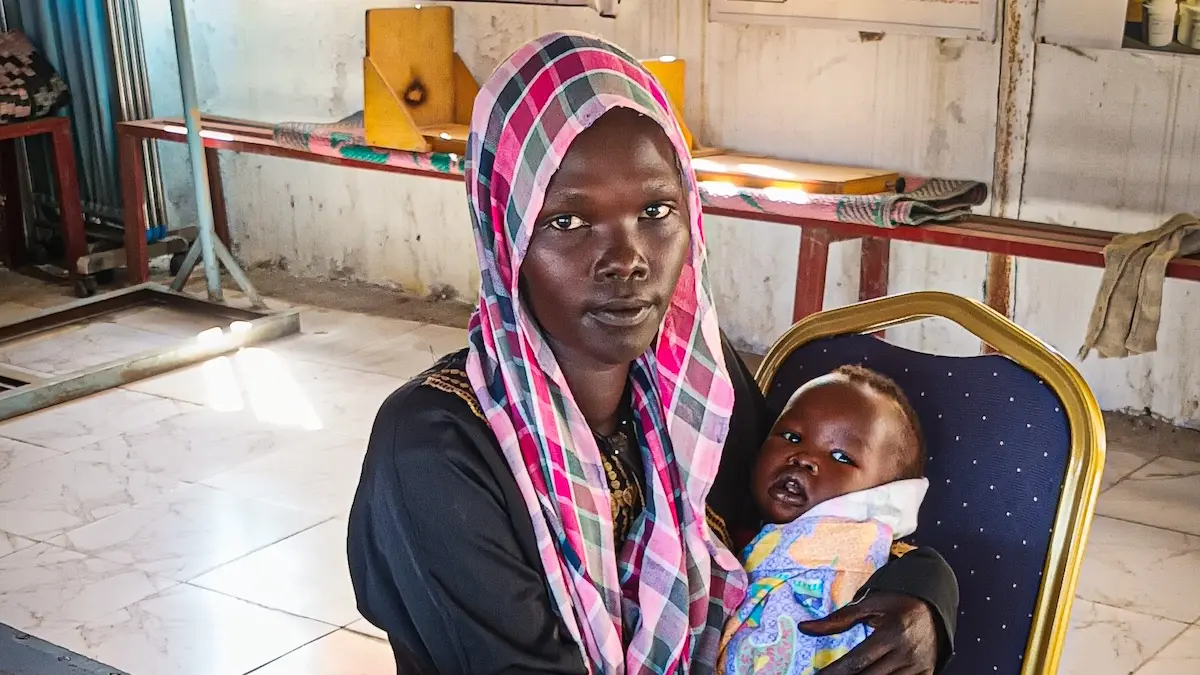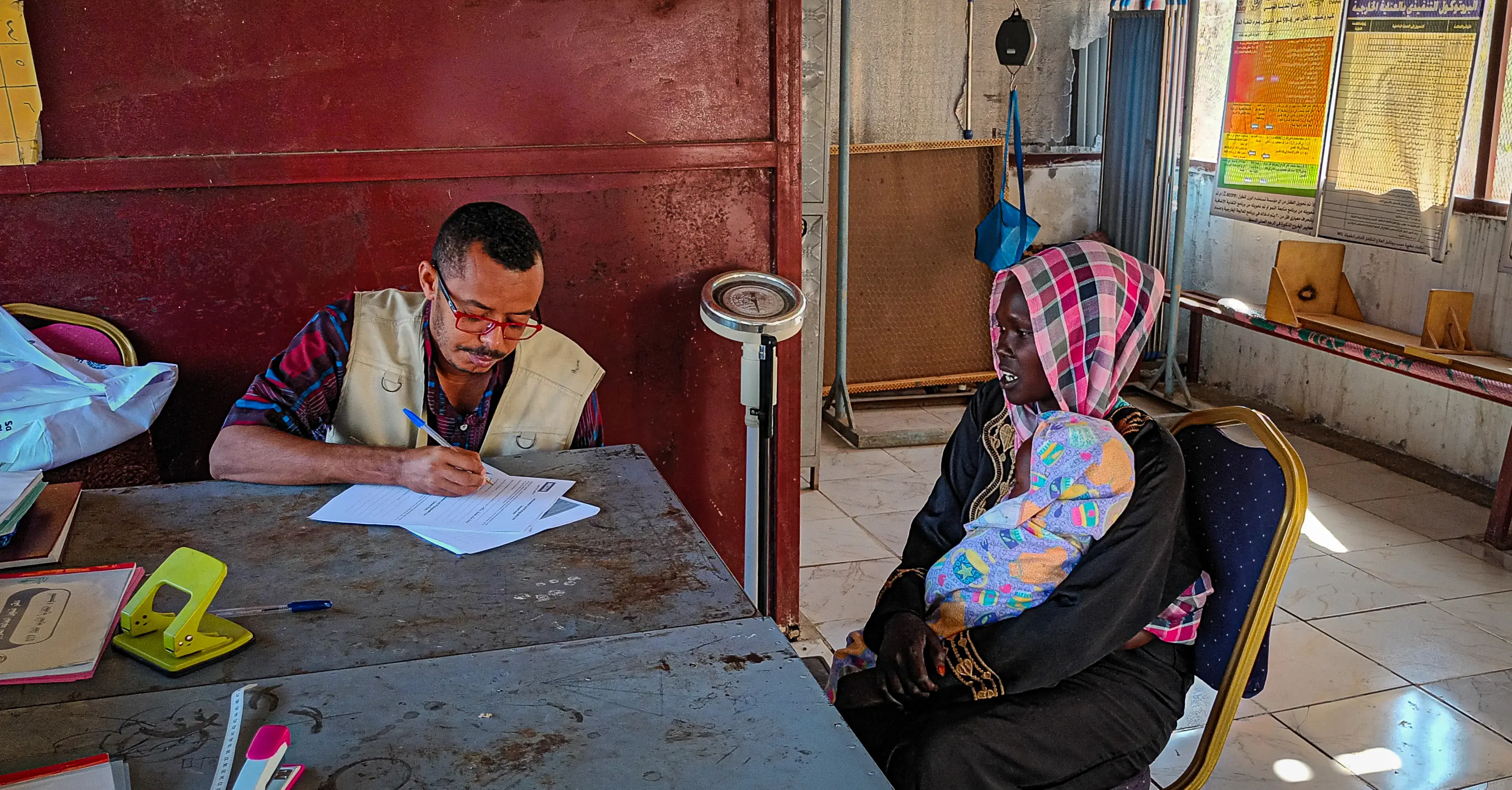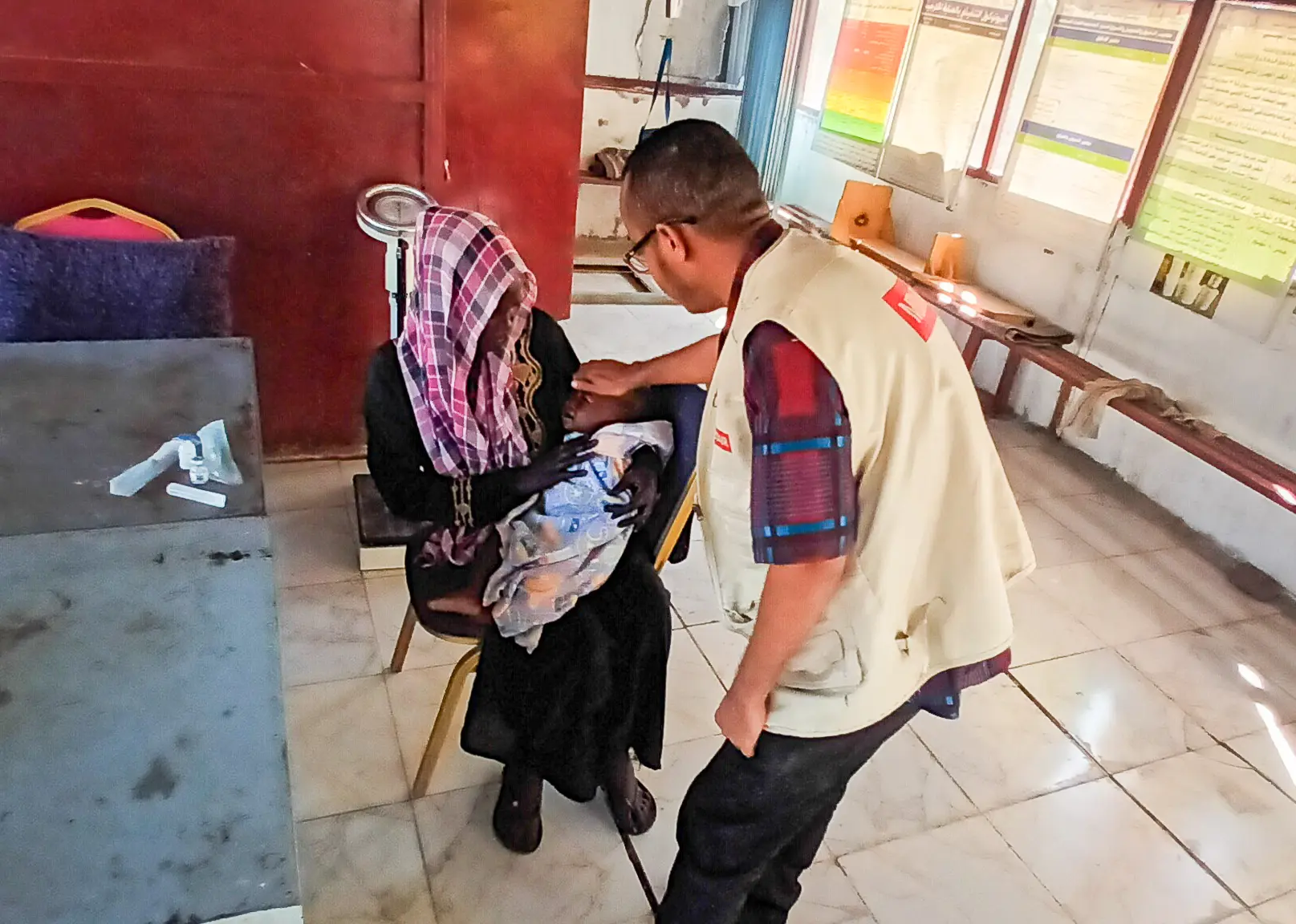“Now I Can Breathe Again”: A Mother’s Story of Hope and Healing in Sudan

In the conflict-ravaged communities of Sudan’s Blue Nile State, access to basic health care is a luxury many families cannot afford. But for Mariam*, Medair’s services meant the difference between fear and peace, between despair and a fragile hope.
Mariam* and her family once lived a quiet life in Blue Nile. She and her husband worked hard to provide for their four children, relying on seasonal labour and small-scale trading to make ends meet. But when violence spread to their area, they suddenly had to flee and seek temporary shelter in a nearby village for three months. When they returned, their home had been looted and most of their belongings destroyed.
“We lost everything,” Mariam* recalls. “Our beds, our utensils… even what was left was thrown into the fields.”
Life after displacement became unbearably hard. With limited income and rising prices, her family could no longer afford even the most basic necessities. Mariam* and her husband now work irregularly as casual labourers, where they earn barely enough for a single meal for the family.
“We used to eat three meals a day. Now we eat only one, around ten in the morning,” she says. “Goods are too expensive. Everything is a struggle.”
Then came tragedy: one of her daughters, already weakened by months of hunger, was diagnosed with kwashiorkor—a severe form of malnutrition. She was admitted to a stabilisation centre and was discharged after showing signs of recovery. But just two weeks later, she passed away at home.
“I had no appetite. My mind was busy. I couldn’t sleep,” Mariam* remembers. “My heart kept beating, and I prayed that my other children stay healthy.”
So when her eight-month-old son Yassin* fell ill with malaria and a respiratory infection, her fears were overwhelming. Mariam* was afraid to lose her son as well.
Restoring Health and Dignity through Medair’s Lifesaving Care
Desperate for help, Mariam* found a local health facility run by Medair. This facility is part of the “MURAD” project, a multisectoral humanitarian aid programme run by NGOs Adra and Medair and funded by the USAID Bureau for Humanitarian Assistance.

“When I came to the health facility, they wrote the name of my son and me in the register. Then I saw the medical assistant. He tested my child for malaria—the result was positive—and he gave me anti-malaria and antibiotics. It was free,” she says.
“When I realised the registration, consultation, diagnosis and treatment were all free—I smiled and felt happier,” she adds. “I felt relieved and comfortable. I was happy my child received medicine, and that I didn’t have to pay.”
Mariam*’s reality is reflective of the broader humanitarian crisis in Sudan, which has dramatically intensified since the conflict between two major military groups escalated in April 2023. Currently, 20.3 million people in Sudan require healthcare assistance, including 7.4 million internally displaced persons (IDPs). Nearly 80% of health facilities in conflict-affected areas are either non-operational or overwhelmed, lacking qualified healthcare workers, medicine and supplies. This means that women and children in particular are facing life-threatening barriers to medical and reproductive health services, while multiple disease outbreaks are spreading throughout the country.
The MURAD project, implemented by Medair in partnership with ADRA, is changing this situation. Medair provides health centres with essential supplies and medicines, trains health workers, and offers free treatment for common illnesses such as malaria, diarrhoea and respiratory infections. Particular focus is given to maternal and child health.
“The facility is just five minutes from my home,” Mariam* says. “The support helped me save money for food. We were afraid of our children being sick. Now, I feel safer.”
Community health workers and trained mother-to-mother support groups—also supported by Medair—now raise awareness in local villages about early warning signs, breastfeeding, hygiene, and malnutrition prevention. “Before, we didn’t know when to seek help. Now we know.”

A Future Built on Compassion and Care
When asked what keeps her going, Mariam* doesn’t hesitate.
“My children are my motivation,” she says. “I pray they grow up healthy and go to school. I hope they become a doctor or an engineer.”
As for herself, she dreams of one day continuing her own education.
“I want to learn and be able to work, instead of cutting straw and carrying heavy loads on my head and neck,” she says. “I hope the fighting ends forever. Our lives are so hard—we women do jobs that are not meant for us.”
Despite the immense hardship, her gratitude is unwavering.
“I thank Medair staff for bringing medicine to our remote health facility,” she says. “Without it, we would have had to pay a lot—or maybe lost another child.”

This intervention is part of the “Multi-Sector Response to Conflict-Affected Communities in Darfur, Blue Nile, and Khartoum” (MURAD) project, implemented by Medair in partnership with ADRA and funded by USAID’s Bureau for Humanitarian Assistance.
*Names have been changed to protect identities.
This content was produced with resources gathered by Medair field and headquarters staff. The views expressed herein are those solely of Medair and should not be taken, in any way, to reflect the official opinion of any other organisation.
%20(1).webp)
%20(2).webp)
.webp)